2022 Award Recipients
SPR Awards Recipients
Maureen Andrew Mentor Award
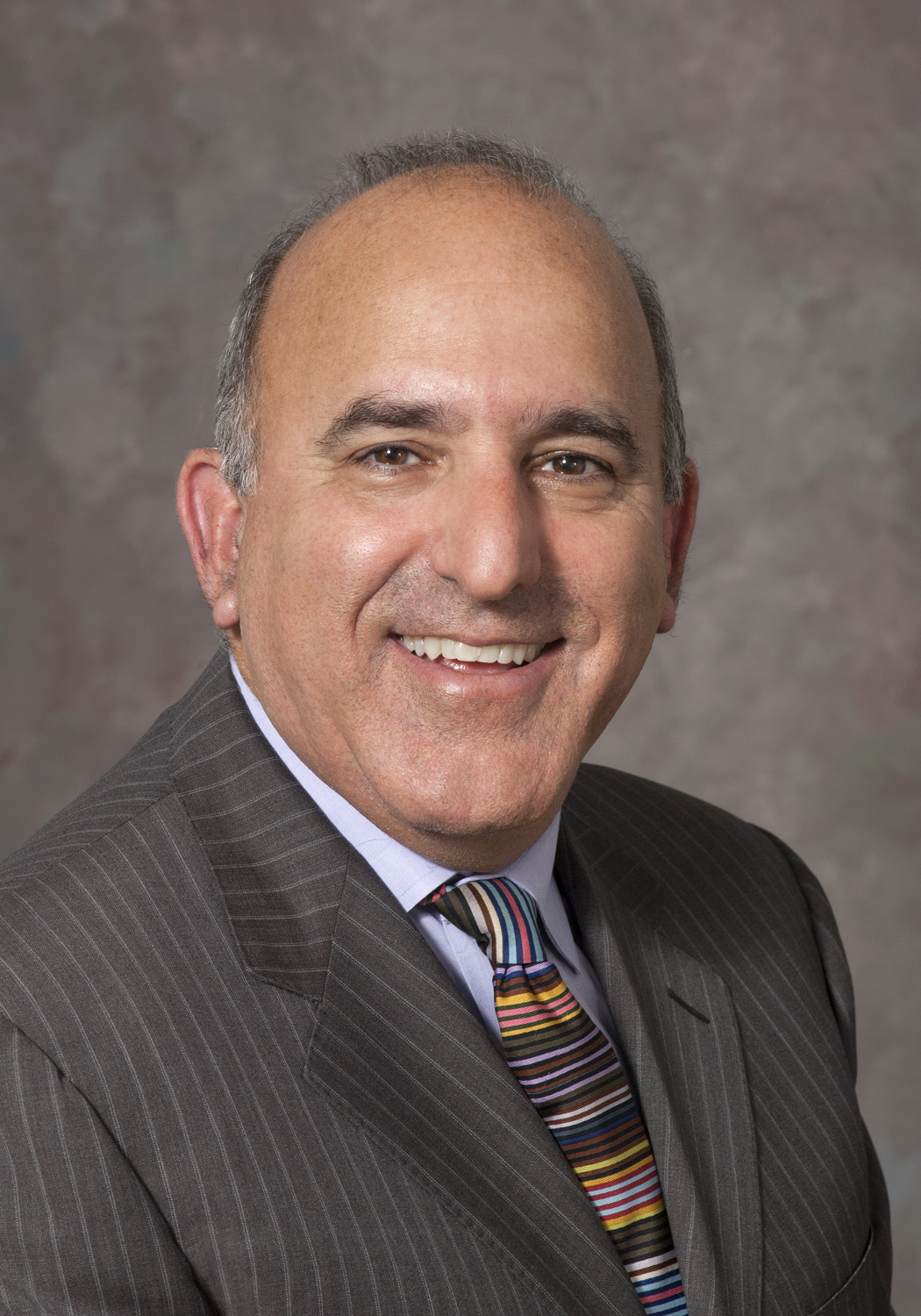 2022 Awardee
2022 Awardee
Nathan Kuppermann, MD, MPH
University of California, Davis School of Medicine
I am honored to receive the Maureen Andrew Mentor Award for directly mentoring scores of individuals who have gone on to be leading federally funded pediatric emergency care investigators and mentors. And I have also helped create many mentoring programs locally, nationally and internationally. These include: A. Local mentoring activities (UC Davis): The mentorship of students, residents, fellows and faculty in the Department for 30 years. B. National mentoring activities I currently serve as mentor for more than a dozen junior / mid-career research faculty members nationally (either on federal training grants or seeking NIH research awards), and internationally (Italy, Argentina, Spain, elsewhere). Bold, definitive research in pediatric emergency care frequently requires the use of research networks, and I have been one of the leaders in this movement nationally and internationally. Participation in these networks requires intensive mentorship of both junior and mid-level investigators, and I have built my career around this. National pediatric emergency care research networks 1. The Pediatric Emergency Medicine Collaborative Research Committee (PEM CRC) of the AAP (https://www.pemcollaborativeresearchcommitteepemcrc.org/) I helped found the PEM CRC and served as its Chair from 1996-2000. I co-created the Ken Graff junior investigator award, named after my first research mentee. The Graff award has gone on to fund dozens of junior investigators and continues to this day. 2. The Pediatric Emergency Care Applied Research Network (PECARN; www.pecarn.org) PECARN is the only federally funded (EMSC/HRSA) research network pertaining to emergency medical services for children in the U.S. I served as the founding Chair of the PECARN Executive Committee from 2001-2008, and I remain as one of the PECARN PIs to this day. I have worked with scores of mentees during 20 years as a PECARN PI. 3. The Clinical Research on Emergency Services and Treatments (CREST) Network of Kaiser Permanente (https://www.kpcrest.net/about) This general emergency care research network was founded in 2008 to and I serve as the mentor to its founder, Dr. Dustin Ballard (a residency graduate of UC Davis), C. International mentoring activities In 2011 I took a sabbatical to Argentina where I helped develop the field of PEM there and start a pediatric emergency care research network which has expanded throughout South America: 1. Red de Investigacion y Desarollo de la Emergencia Pediatrica Latinoamerica – RIDEPLA (Network for Research and Development of Pediatric Emergency Medicine in Latinamerica) 2. Pediatric Emergency Research Network (PERN; https://pern-global.com/?page_id=58) A decade ago, I became a founding member and executive committee member of an international research network called “PERN” (Pediatric Emergency Research Networks). PERN is a constellation of 8 international pediatric emergency care research networks, several of which I serve on the Executive Committees and help with strategy and mentorship. I was elected to serve as the second Chair of PERN from 2014-2018, and I continue to mentor its leaders and investigators. PERN has published several global studies on acute poisoning, bronchiolitis and others. I have served as a mentor on many of these, including a current PERN study of the epidemiology of pneumonia in 2000 children in ~ 100 countries to develop a severity prediction rule and the largest randomized clinical trial in pediatric emergency care ever conducted, in which we are randomizing ~ 9000 children at risk of sepsis to receive either normal saline or balanced solution (lactated Ringer’s or PlasmaLyte). I am so honored to be receiving the Maureen Andrew Mentoring Award. Respectfully, Nathan Kuppermann
Thomas A. Hazinski Distinguished Service Award
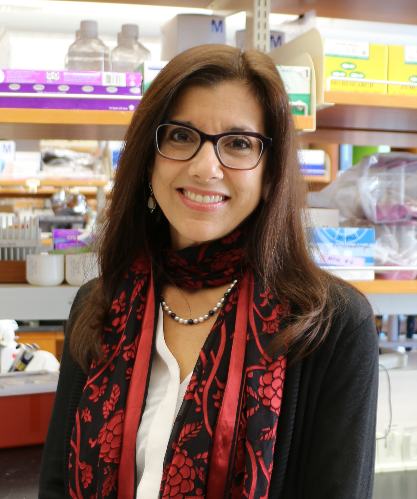
2022 Awardee
Michelle A. Gill, MD, PhD
Dr. Gill is Director, Center for Pediatric Pulmonary Disease and Asthma; and Professor of Pediatrics, Division of Allergy, Pulmonology Medicine and Infectious Diseases at Washington University in St. Louis, MO. Before being recruited to Washington University in September 2021, she was the Assistant Director of the Medical Scientist Training Program and Pediatric Infectious Disease Specialist at UT Southwestern Medical Center.
The Thomas A. Hazinski SPR Distinguished Service Award honors a special individual who has provided exceptional service to the Society over an extended period of time. Dr. Gill was elected to the Society for Pediatric Research (SPR) membership in 2006. Since then, she has served as SPR Councilor, SPR President, SPR Ambassador North American Regionals and several SPR committees, such as SPR Meeting Content Committee, and various award selection committees including SPR’s Bridging to Success Award Committee. She has also served as SPR’s representative to the PAS Program Committee, PAS Board of Directors just to name a few.
“We are excited to recognize Dr. Gill for her outstanding work with the society and her commitment to training the next generation of translational researchers,” said SPR President Beth A. Tarini, MD, MS. “A vital part of our organization, she has tirelessly served SPR for over 15 years. Her tremendous service to this organization has helped further our mission of creating a network of multi-disciplinary researchers to improve child health.”
Dr. Gill received her MD and PhD in Cellular Biology & Anatomy from Louisiana State University Medical Center in Shreveport, LA. She completed her Pediatric Residency and Chief Resident year at Arkansas Children’s Hospital/University of Arkansas Medical Sciences in Little Rock. Her Pediatric Infectious Diseases fellowship training was completed at UT Southwestern Medical Center in Dallas.
Dr. Gill’s research interests center around two of the most common etiologies of respiratory disease in children: allergic airway diseases including asthma and viral respiratory infections. The role of dendritic cells and monocytes in these clinically relevant disease processes is poorly understood. Investigations in Dr. Gill’s laboratory are designed to define mechanisms underlying the potential contribution of these immune cells to the pathogenesis of respiratory diseases in children.
Leadership roles and honors during Dr. Gill’s career have included: Assistant Director of the Medical Scientist Training Program at UT Southwestern Medical Center; President of Society for Pediatric Research (SPR); SPR Ambassador for North American Regional Societies; Board of Directors, Pediatric Academic Societies, NIH NIAID Inner City Asthma Consortium steering committee; FDA Allergenic Products Advisory Committee; and Alpha Omega Alpha member.
Society for Pediatric Research Award in Honor of E. Mead Johnson

2022 Awardee
Vijay Sankaran, MD, PhD
Boston Children’s Hospital & Harvard Medical School
Dr. Vijay Sankaran is the recipient of the 2022 E. Mead Johnson Award from the Society for Pediatric Research for his research that has employed human genetic variation to advance our understanding of blood cell production and how this process goes awry in disease. Many of these research findings have led to clinical advances for children afflicted by blood disorders. Dr. Sankaran is a leader at performing mechanistic studies that build off of the insights gained from naturally occurring human variation.
Dr. Sankaran’s research has advanced our understanding of how fetal hemoglobin expression is regulated – a target of many therapies to treat sickle cell disease and thalassemia, provided new insights into the pathogenic mechanisms of childhood blood diseases including Diamond-Blackfan anemia, revealed how a spectrum of genetic variation can predispose individuals to acquiring blood cancers, and developed methods for tracking natural cell barcodes to enable lineage tracing in human health and disease. Dr. Sankaran has trained a number of individuals in his laboratory who themselves have gone on to become leading independent investigators. He is the Lodish Family Chair in the Division of Hematology/Oncology at Boston Children’s Hospital, an Associate Professor of Pediatrics at Harvard Medical School, an Attending Physician in the Dana-Farber/ Boston Children’s Cancer and Blood Disorders Center, a Robertson Investigator of the New York Stem Cell Foundation, a Principal Faculty Member of the Harvard Stem Cell Institute, and an Associate Member of the Broad Institute.
Douglas K. Richardson Award for Perinatal and Pediatric Healthcare Research
2022 A wardee
wardee
Peter Szilagyi, MD, MPH
UCLA
Dr. Szilagyi is one of the pre-eminent academic general pediatricians in the US who has transformed the field of immunization delivery, public health, and preventive healthcare delivery for children. His major career impact in research has been to transform the immunization delivery research field nationally from a discipline relying on epidemiology to a discipline of immunization delivery research that systematically investigates the burden of disease, vaccination rates, barriers to vaccination, and interventions to raise vaccination coverage for children, adolescents, and adults. Dr. Szilagyi’s second major contribution has been to perform the research to provide the evidence for the importance of adequate health insurance for all children, particularly those who are poor and those with chronic conditions. His third major research contribution has been to help transform primary pediatric care toward population-based preventive care.
In addition, Dr. Szilagyi has bridged research, public health, and health policy. His policy work has been instrumental in vaccine financing, ACIP’s vaccine decisions, and US policies to insure children. His work led strongly to the development and renewal of the CHIP Program and Medicaid expansions. His leadership in professional organizations as President of the Academic Pediatric Association, and his work as APA Board member for more than 15 years and editor-in-chief of Academic Pediatrics has helped build the field of general academic pediatrics.
Dr. Szilagyi’s boundless energy and passion to mentor junior individuals locally and nationally has helped many others succeed in academic pediatrics. He remains a humble pediatrician, he prefers to give credit to others, he thrives on collaboration, and he supports people and organizations with a passion to make this world a better place for children. Through his research, powerful advocacy, and passion for people, Dr. Szilagyi has made a real difference in the careers of countless individuals and in the health of children and families across the United States.
Bridging to Success Award
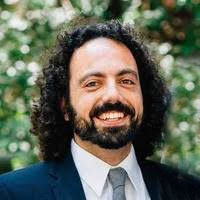
2022 Awardee
Matthew Pantell, MD, MS
University of California, San Francisco
Dr. Pantell worked at the Health Policy Center of the Urban Institute before attending the UC (University of California) Berkeley – UC San Francisco (UCSF) Joint Medical Program for medical school, where he earned an MD and a Master’s in Health and Medical Sciences focusing on social epidemiology. He then completed his residency in pediatrics and served as a Chief Resident at the University of California, San Francisco. He was also a fellow in the Clinical Research Training Program at the NIH, where his work focused on biomarkers of social adversity.
Currently he is an Assistant Professor at UCSF, where his research is conducted with the UCSF Center for Health and Community, the UCSF Social Interventions Research and Evaluation Network, and the Philip R. Lee Institute for Health Policy Studies. Broadly, his research focuses on social determinants of health. More specifically, his research focuses on implementing social needs screening in clinical settings, the utility of incorporating social information into clinical decision making, addressing social needs in clinical settings, data mining and the analysis of large datasets, and biological manifestations of the social determinants of health.
Clinically, Dr. Pantell works is as a pediatric hospitalist at UCSF Benioff Children’s Hospital – Mission Bay and Washington Hospital in the San Francisco Bay Area. He also works as a pediatric urgent care physician and runs the Tattoo Removal Clinic at Zuckerberg San Francisco General Hospital.
PROSPER Diversity Award

Award Sponsored by: ![]()
Kasee Houston, MD, MPP
University of California, Los Angeles
Dr. Kasee Houston, MD/MPP is a fellow in the Division of Neonatology at the University of California, Los Angeles
(UCLA). She received a B.A. in biology and minored in Spanish at San Diego State University. With a goal of becoming a
physician leader who addresses health disparities, Kasee received her medical degree at the Charles R. Drew University
of Medicine and Sciences/UCLA Program in Medical Education (PRIME) and obtained her Master of Public Policy at the
UCLA Luskin School of Public Affairs. She then developed her clinical skills in pediatric residency the University of
Washington/Seattle Children’s Hospital. She returned to UCLA for her fellowship in neonatal-perinatal medicine, where
she is now a second-year fellow.
Her research interests include neonatal health inequities, and identifying solutions to address poor birth and neonatal
health outcomes such as preterm birth and low birth weight for marginalized Black/African American and Latinx
communities. She is leading a qualitative study in partnership with the LA County Department of Health Services’
Maternity Assessment Management and Service synergy through the Neighborhood (MAMAs) program to understand the impact of the COVID-19 pandemic on the delivery of this comprehensive maternal medical home program and how the
program addresses toxic stress and structural oppression due to racism and discrimination, with the ultimate goal of
reducing adverse birth outcomes.
 Danitza Nebor, PhD
Danitza Nebor, PhD
Baylor College of Medicine
Dr. Danitza Nebor, PhD, is an instructor in the department of Pediatrics at Baylor College of Medicine (BCM). She was born and raised in the small Caribbean island of Guadeloupe and received her master degree from the University Paris VII (France). She then completed her PhD at the French National Institute of Health and Medical Research (Inserm) for which she was awarded best PhD in science of the French West Indies. During this time Dr. Nebor was elected PhD student representative and served as Co-Chair for the Young Scientists Association of Guadeloupe.
In 2012, she joined the Jackson Laboratory (Bar Harbor, Maine, USA) as a postdoctoral associate where she received extensive training in mouse biomethods. She is now continuing her training as an instructor at Baylor College of Medicine. Her research focuses on the identification of new therapeutic strategies to improve the symptoms of sickle cell disease, a severe genetic blood disorder that affects over 300,000 newborns worldwide each year and is particularly frequent in African American and people of African descent.
New Member Outstanding Science Award
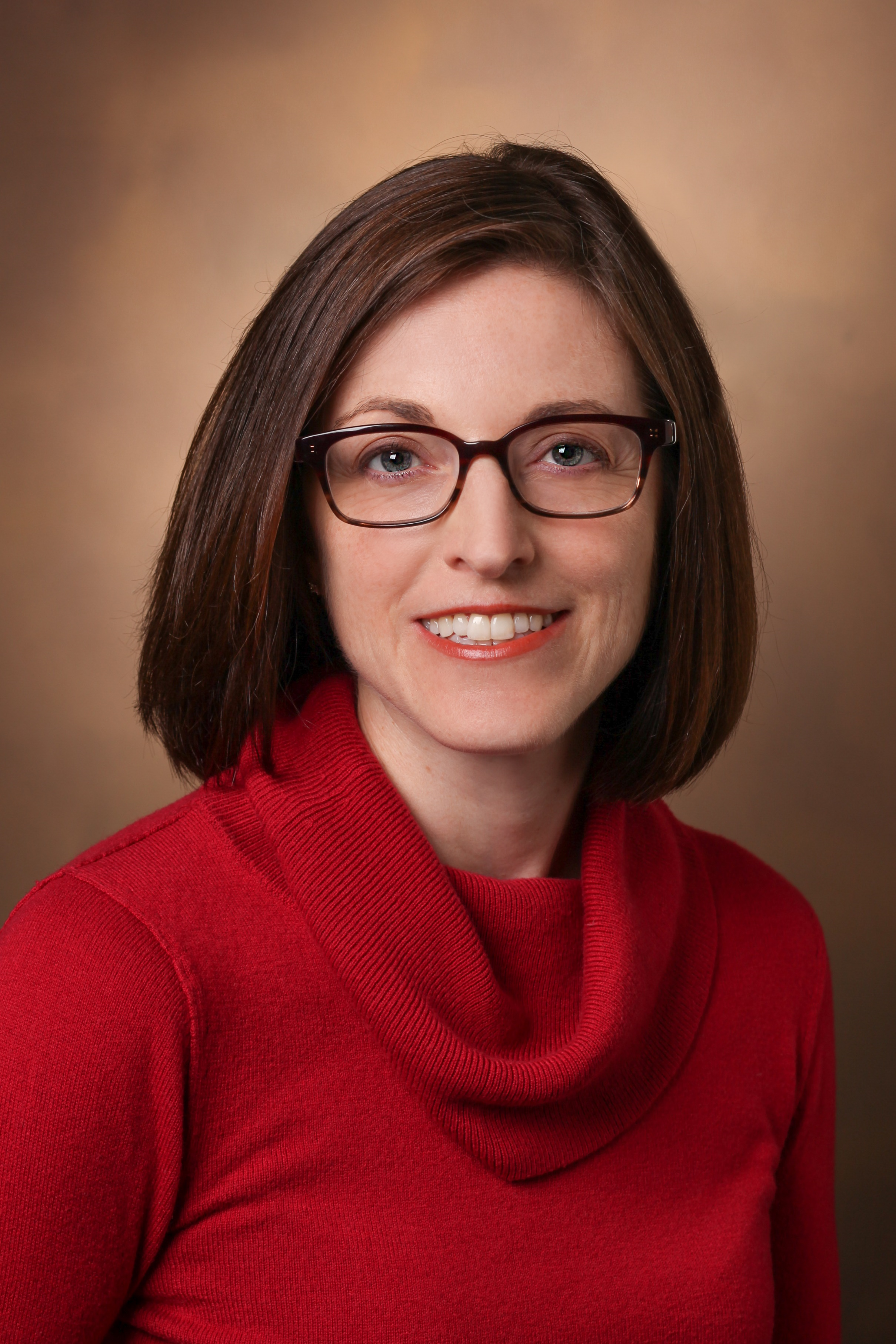 Kristen M. Ogden, PhD
Kristen M. Ogden, PhD
Kristen M. Ogden, PhD is an Assistant Professor of Pediatrics and Pathology, Microbiology, and Immunology at Vanderbilt University Medical Center. She uses molecular virology approaches to understand how rotavirus and reovirus acquire genetic diversity and how this diversity impacts virus and host populations. A long-term goal of this work is to make discoveries that enable rational engineering of improved vaccines and therapeutics.
SPR Awards to Enhance Diversity in the Research Workforce
 2022 Award to Enhance Diversity in the Research Workforce-ESPR
2022 Award to Enhance Diversity in the Research Workforce-ESPR
Mausma Bawa, MD
Jacobs School of Medicine, University at Buffalo
Dr. Mausma Bawa, MD is currently a final-year Neonatology fellow at the University at Buffalo, New York. Her interest in neonatal resuscitation began during her medical training in India, where she witnessed high morbidity and mortality from birth asphyxia. Under the able mentorship of Dr. Praveen Chandrasekharan, her current research focuses on the impact of resuscitation and evaluation of cardiac and brain injury using an ovine bradycardia model.
Dr. Bawa is a junior member of the ESPR, Society for Pediatric Research and MSPR – Lung Biology Research Cohort Network – a pilot program to support early career pediatric researchers.
She is the recipient of multiple awards including the ESPR Young Investigator Trainee Award 2021and the SPR Fellows Clinical Research Award 2021. Additionally, she is one of the 3 early-stage investigators nominated by SPR to present her research at the 125th Annual Meeting of the Japan Pediatric Society (April 2022).
This year, she is a recipient of the 2022 ESPR Abbott Nutrition Trainee Diversity in the Workforce Travel Award for her abstract “A randomized control trial comparing the current recommendations of ventilation and chest compression vs ventilation during neonatal resuscitation using an ovine model of bradycardia”. She is also one of the 29 trainees to receive the PAS 2022 Trainee Travel Award happening in Denver, Colorado (April 2022).
As a future neonatologist and researcher, her goal is to optimize neonatal outcomes by developing interventions to prevent or mitigate morbidities due to perinatal asphyxia.
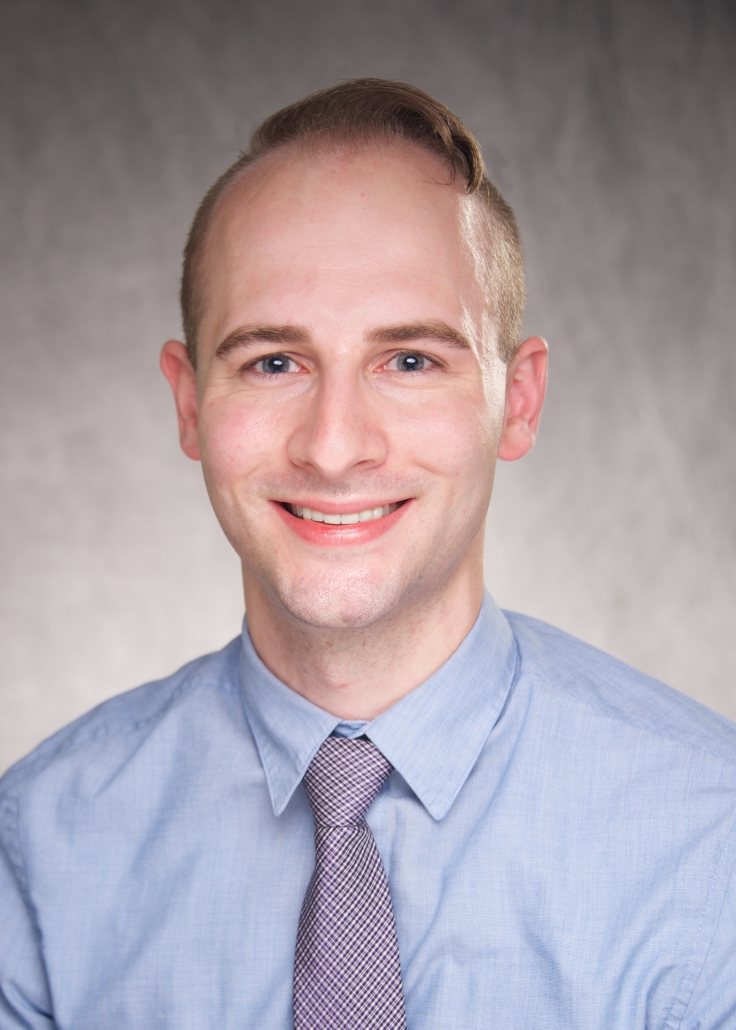
2022 Award to Enhance Diversity in the Research Workforce-MSPR
TJ Boly, DO
University of Iowa
As a gay man in medicine, I received many opportunities throughout my residency training to learn to communicate and care for individuals in the LGBTQ+ populations. I took extra opportunities to speak with LGBTQ+ adolescents about our shared experiences and participate in educational activities about LGBTQ+ health. As I transitioned into fellowship and found a love for research, I was surprised to find that there LGBTQ+ individuals are underrepresented and experience biases in career advancement in the sciences.
I have been fortunate to have very supportive mentors who have continued to encourage my pursuit of becoming a physician-scientist. As my career advances, I will continue to promote diversity, not only in medicine but in the research setting as well. I hope to be able to mentor LGBTQ+ individuals to pursue careers in the sciences, as my mentors have for me.
 2022 Award to Enhance Diversity in the Research Workforce-SSPR
2022 Award to Enhance Diversity in the Research Workforce-SSPR
Desalyn Johnson, BS in Biological Sciences
The University of Alabama Heersink School of Medicine
Desalyn Johnson is a medical student at the University of Alabama at Birmingham Heersink School of Medicine. She graduated summa cum laude from the University of Alabama in Huntsville with a Bachelor of Science in Biological Sciences . Her undergraduate research experiences include performing cell culture and analysis of assay results to determine the cytotoxicity of various compounds. She has a first-author publication in the American Journal of Medical Genetics and she recently analyzed data from the international Global Genomic Medicine Collaborative survey and a first-authored manuscript has been accepted for publication by Personalized Medicine.
She is interested in reducing health disparities in infant outcomes in the United States. She received a National Institutes of Health (NIH) funded National Research Service Award (NRSA) to investigate the effect of insurance status on infant outcomes in the Unites States. Her study found that maternal private health insurance is associated with a lower risk of infant mortality compared with Medicaid health insurance after adjustment for race, sex, multiple birth, and maternal pregnancy risk factors. In addition, privately insured pregnancies have higher rates of early prenatal care, less preterm and low birth weight births, and less infant morbidity. Her work suggests that there may be opportunities to improve access to care and pregnancy outcomes among Medicaid insured pregnancies in the United States. She was nominated for the Southern Society for Pediatric Research Young Investigators Award for clinical science.
 2022 Award to Enhance Diversity in the Research Workforce-WSPR
2022 Award to Enhance Diversity in the Research Workforce-WSPR
Kameelah Gateau, MD, MS
Keck School of Medicine, University of Southern California
Dr. Kameelah Gateau is currently a Neonatal-Perinatal Medicine Fellow at the University of Southern California. She did her Residency and Chief Residency in pediatrics at Children’s Hospital Los Angeles. She has dedicated her career to understanding the ecobiodevelopmental model of childhood health and its interaction with the toxic stress response. She has authored primary peer-reviewed literature on the mental health effects seen in low income caregivers of color caring for ill children. She is a staunch advocate of maternal and infant health and has dedicated her practice to understanding the factors that lead to worse health outcomes for mothers and infants of color while providing wholistic patient-centered care.
Young Investigator Award
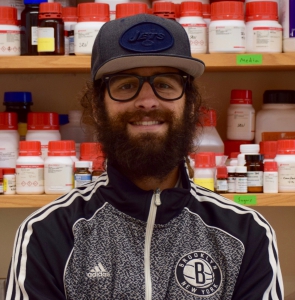 2022 SPR Young Investigator Awardee
2022 SPR Young Investigator Awardee
Seth Rakoff-Nahoum, MD, PhD
Harvard Medical School and Boston Children’s Hospital
Seth Rakoff-Nahoum is an Assistant Professor of Pediatrics at Harvard Medical School and the Boston Children’s Hospital Microbiome Research Endowed Investigator where he is in the Divisions of Infectious Diseases and Gastroenterology at BCH, the Department of Microbiology at HMS, and an Associate Member of the Broad Institute. Dr. Rakoff-Nahoum received B.A.’s in Biology and Religious Studies at Brown University, and both an M.D. and Ph.D in Immunobiology from Yale University, performing graduate work with Ruslan Medzhitov, studying pattern recognition of the microbiota. During clinical training in Pediatrics and Pediatric Infectious Diseases, he performed postdoctoral work with Laurie Comstock, studying social evolution in gut microbial communities.
The Rakoff-Nahoum lab uses tools of a broad toolkit in microbiology, immunology, host and bacterial genetics, gnotobiotics, bioinformatics and computational biology, centered in ecological and evolutionary frameworks, to understand how microbes interact with the environment, each other and their host. The driving principle of the lab is that by understanding the molecular, genetic, ecological and evolutionary mechanisms of how microbiome communities form and shape, with focus on the pediatric population, and how the microbiome influences host tissue and physiological systems over time and across health and disease, we can design targeted, ecologically- and mechanistically- rationale interventions to engineer a healthy and normative microbiome-host axis.
Dr. Rakoff-Nahoum’s work has defined innate immune pattern recognition as a dominant mechanism in animal-microbiome symbiosis and microbiome-driven human disease from IBD to cancer (Cell 2004, Immunity 2006, Science 2007), combined social evolutionary theory and bacterial genetics to unveil diet-based microbe-microbe interaction networks in the gut (Current Biology 2014) and reveal a rare example of inter-species altruism among microorganisms (Nature 2016), introduced control theory to understand host associated microbiomes (Nature 2017), transformed next-generation sequencing toward mechanistically predictive, ecologically-powered quantitative science to disentangle early-life microbiome assembly (Nature 2021) and revealed emergent properties in bacteria (Cell 2022). Dr. Rakoff-Nahoum’s lab is supported in part by the Pew Scholars Program in Biomedical Sciences, an NIH Director’s New Innovator Award a Basil O’Connor Award from the March of Dimes, the G. Harold and Leila Y. Mathers Charitable Foundation and a Career Award for Medical Scientists from the Burroughs Wellcome Foundation.
SPR and APS Joint Award Recipient
Mary Ellen Avery Neonatal Research Award
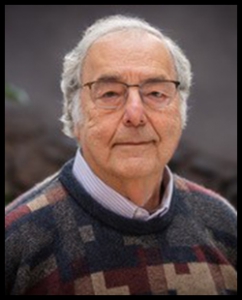
Michael A. Heymann, MD
Professor Pediatrics (Emeritus)
University of California San Francisco (UCSF)
FOPO Award Recipient
Joseph W. St. Geme, Jr. Leadership Award
Fer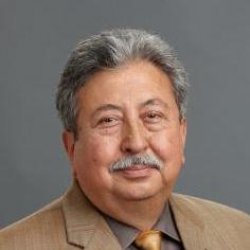 nando Mendoza, MD, MPH
nando Mendoza, MD, MPH
Pediatrician Dr. Fernando Mendoza, MD, MPH, is named the 2022 recipient of the Joseph
W. St. Geme, Jr. Leadership Award by the Federation of Pediatric Organizations (FOPO). Dr. Mendoza is
an inspirational leader, tireless advocate for our most underserved pediatric populations, and pioneering
researcher focused on immigrant health and policy. His greatest legacy may be his impact on diversity in
medical education, with special attention on the pipeline for underrepresented minorities.
The Federation is comprised of seven pediatric organizations, representing every pediatrician in the country
and the recipient is honored at the Pediatric Academic Societies (PAS) Meeting’s Opening General Session
scheduled for Friday, April 22, 2022 in Denver, CO.
Abstract Related Awards Recipients
House Officer Research Award
 Henna Boolchandani, MD
Henna Boolchandani, MD
Yale New Haven Hospital
Dr. Henna Boolchandani is a third-year pediatrics resident at Yale New Haven Children’s Hospital. She received a B.S. in finance and international business from NYU and worked on Wall Street as an investment banking analyst before deciding to pursue a career change into medicine. She graduated from Albert Einstein College of Medicine in the Bronx, NY and is now completing a general pediatrics residency at Yale. Henna will be starting Pediatric Emergency Fellowship at Emory/Children’s Healthcare of Atlanta this summer.
During residency Henna partnered with her mentor, Dr. Melissa Langhan, to conceptualize and design a retrospective study examining the presence of gender and racial bias in pediatric fellowship letters of recommendation. To analyze 1,500+ letters of recommendation for 8 pediatric fellowships, she customized a natural language processing web-based application based off an open-source code repository. The research identified small, but significant, differences in linguistic choices based on applicant and letter writer gender. The next phase will explore if these biases impacted decisions to interview and rank candidates. The objective and motivation behind this study is to increase awareness of potential linguistic biases that may impact an individual’s training opportunities. Ultimately, she hopes to share a tool publicly to address these biases and counteract inequities that may exist within pediatric academic medicine.
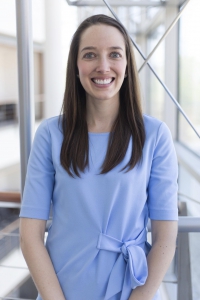
Melissa Day, MD
Cincinnati Children’s Hospital Medical Center
Melissa E. Day, MD, is a third-year pediatrics resident at Cincinnati Children’s Hospital Medical Center. She received her undergraduate degree from Duke University and her medical degree from Vanderbilt University School of Medicine. During medical school, she was a recipient of a research grant through the Doris Duke Clinical Research Mentorship, which funded research highlighting women’s health issues in sickle cell disease.
During her residency training, Melissa has continued to use research to advocate for disadvantaged populations. After observing the significant disparities and social determinants of health present in her primary care continuity clinic, she conceptualized and designed a cross-sectional study investigating the association between adverse childhood experiences (ACEs) in the caregivers of pediatric patients and pediatric influenza and COVID-19 vaccination uptake. She has found that caregivers with 4 or more ACEs are more likely to accept both influenza and COVID-19 vaccination for their children, highlighting the need for further studies assessing the role caregiver ACEs can have on vaccine decision-making. Melissa will continue her research efforts during her pediatric infectious diseases fellowship training at Cincinnati Children’s Hospital Medical Center next year.
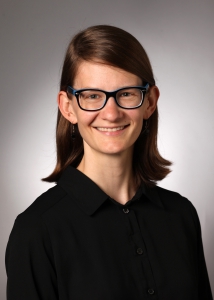
Lillian Juttukonda, MD, PhD
Boston Children’s Hospital and Boston Medical Center
Lillian Juttukonda, MD, PhD is a third-year resident in the Boston Combined Residency Program at Boston Children’s Hospital and Boston Medical Center. For her residency research project, she is investigating the placental immune response to COVID-19 under the supervision of Elizabeth Taglauer, MD, PhD and Elisha Wachman, MD, both neonatologists at Boston Medical Center.
Lillian’s research focuses on the maternal immune response in the placenta following maternal COVID-19. Her research compared paired placental, maternal blood, and infant blood samples at delivery from women who had COVID-19 during the second or third trimester of pregnancy to women who did not have COVID-19 or vaccination against COVID-19 during pregnancy. She found that when women had COVID-19 in the third trimester, their placentas had increased numbers of immune cells from the innate immune system (NK cells and macrophages) and adaptive immune system (T cells). In contrast, women who had COVID-19 in the second trimester had no changes in innate immune cell numbers in the placenta but did have increased T cells. When comparing the cytokine responses in the placenta, maternal blood, and cord blood, she found that cytokines in the blood were increased following COVID-19 but were not increased in the placenta. Overall, her research demonstrates that COVID-19 leads to a robust immune response in the placenta, which may impact fetal development and long-term outcomes for children born to women with COVID-19 during pregnancy. Current research endeavors are focused on understanding the impact of vaccination against COVID-19 during pregnancy on the immune response in the placenta.
Prior to pediatrics residency, Lillian completed her Bachelor in Music at Vanderbilt University in Nashville, TN, where she majored in Violin Performance with a second major in Chemistry. Her undergraduate research focused on synthesis and characterization of liquid crystalline materials. She completed her MD and PhD in Microbiology and Immunology at Vanderbilt School of Medicine. Her PhD research under thesis mentor Eric Skaar, PhD, MPH focused on the battle between bacterial pathogens and the immune system for nutrient manganese and led to nine publications, including five as first author. She will be a fellow in the Harvard Neonatal-Perinatal Medicine Fellowship beginning in July, 2022.
Student Research Award

Highschool/College Awardees
Kathryn Farrell
Children’s Hospital of Philadelphia
Bronchopulmonary dysplasia (BPD) is the most common complication of prematurity. I was fortunate to work with the Dr. Sara DeMauro and the Chronic Lung Disease Program at CHOP to conduct a study evaluating the health-related quality of life and adaptive skills in children with BPD who were cared for by this program. The study was done through 45 minute phone interviews, which collected data on both the parent’s and child’s health-related quality of life, an overview on the child’s current medical and developmental status, the child’s adaptive skills/behaviors and the impact of COVID-19 on the family. Many studies have previously looked at younger children, around 2 years old or younger, but few studies have looked at BPD throughout childhood. This study evaluated a more inclusive group of children aged 0-12 years old.
During this experience, I spent most of my time doing data collection, data analyses, chart reviewing and recruiting families for the project. Many children with BPD suffer from respiratory complications, comorbidities and associated developmental delays throughout their development. Hearing the family’s perspective on their child’s health was particularly intriguing for me. I realized that there is little known about the parent’s health related to quality of life and how this relates to their perception of their child’s health and the child’s health resource utilization. I set out to investigate this by looking for associations between the parent’s overall descriptions of their child’s health, the actual severity of their children’s illness based on health service utilization and the parent’s self-reported health related quality of life. My results indicated that a positive parental view of their child’s health is a strong indicator of a higher quality of life, regardless of how medically complicated their child is. Knowledge of the factors that contribute to health related quality of life for parents with severe BPD will facilitate identification of families that may benefit from additional psychosocial support.
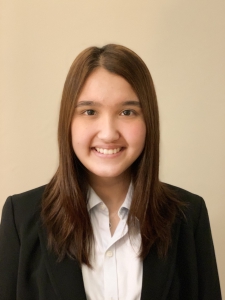
Celia Yu
The Lundquist Institute, University of California, San Diego
Celia Yu is a 3rd year undergraduate student majoring in Biology at University of California, San Diego. Her interests in neonatology led her to start working at The Lundquist Institute in 2017, under the mentorship of Dr. Virender Rehan. Celia has been studying the effects of perinatal nicotine and e-cigarette exposure on asthma phenotype in rat offspring, and their transmission in male and female germlines. Results show that e-cigarette exposure exacerbates asthma phenotype in both male and female offspring, perhaps more drastically than subcutaneous nicotine exposure. She has also investigated the correlations between perinatal nicotine exposure and heart extracellular matrix in rat offspring.
Her extensive work in the research field has led to 2 published manuscripts in Neonatology, and multiple oral and poster presentations. In addition, her research has led to recognition from the Society of Pediatric Research, who awarded her the SPR Student Research Award in 2019. Celia endeavors to become a neonatologist, while still being heavily involved in research. She plans on applying to medical school in the next application cycle.
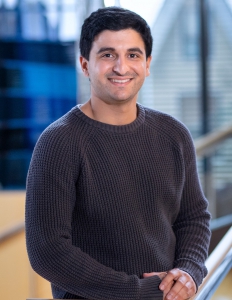
MD/PhD Awardees
Robert D’Cruz
The Hospital for Sick Children
I am an MD/PhD candidate at The Temerty Faculty of Medicine at the University of Toronto. I am completing my PhD at Sickkids Hospital under the supervision of Dr. Norman Rosenblum. My PhD thesis focuses on uncovering the molecular mechanisms driving kidney and nephron malformation.
Kidney malformation is the major cause of pediatric kidney failure, and nephron number is an important determinant of later kidney disease and complications. Our work uncovers novel and potential therapeutic targets to improve nephron endowment using both genetic mouse and human kidney organoid models of kidney malformation.
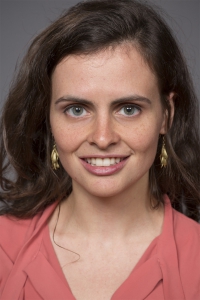 Sarah (Sadie) Meller
Sarah (Sadie) Meller
Yale School of Medicine
Sarah (Sadie) Meller is an MD/PhD candidate at Yale University, where she studies how immune cell activation may influence neuronal migration. In particular, she is interested in the activities of microglia, which are brain-resident immune cells responsible for both maintaining homeostatic conditions necessary for normal neurodevelopment as well as orchestrating the brain’s response to environmental insults.
For her 2022 PAS abstract submission, Sadie examined how microglia maintain homeostatic conditions in the neuroblast migratory corridor of the rostral migratory stream (RMS) during early postnatal development. Microglia depletion in mice induced an accumulation of apoptotic neuroblasts within a broader migratory corridor, suggesting that microglia may eliminate excess neuroblasts or selectively clear those showing aberrant migration. Sadie hopes that her research will provide insights into how infection or trauma during development may disrupt microglia’s normal activities and ultimately help improve therapeutic strategies following early life brain injury. In her future career, Sadie aims to research how environmental hazards impact brain development and communicate children’s vulnerability to the health effects of climate change.

Medical Awardees
Emilie Groulx-Boivin, BSc
Montreal Children’s Hospital, McGill University
Emilie Groulx-Boivin is a third-year medical student at McGill University in Montreal, Canada. Under the mentorship of Dr. Jarred Garfinkle, she has been investigating the natural evolution of post-hemorrhagic ventricular dilatation in preterm newborns. She is being recognized for an abstract demonstrating that newborns without spontaneous resolution of post-hemorrhagic ventricular dilatation are at higher risk for neurodevelopmental impairments despite neurosurgical interventions.
Emilie is passionate about neonatal neurology. She hopes that her research will assist clinicians in prognostication and ultimately contribute to the development of new strategies to mitigate the burden of impairments among these patients.
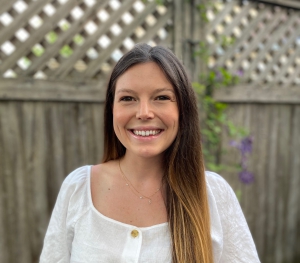
Holly Shifman
Oakland University William Beaumont School of Medicine
Holly Shifman is a second-year medical student at Oakland University William Beaumont School of Medicine. Under the mentorship of Dr. Sharad Wadhwani, Holly has been studying the role that social adversity – including primary care access, structural racism, state policies, and poverty – has on pediatric liver transplant outcomes. Through this work, she hopes to help characterize the barriers to ideal care and outcomes that children face after transplantation, and in turn, inform interventions that will improve long-term outcomes. Holly is being recognized for her work in identifying the association between living in areas with primary care shortages and an increased hazard of graft failure and death after pediatric liver transplant. She hopes that this work will help shape policies and health system changes that can reduce the risk and presence of these shortage areas and improve the health of all children with chronic illness.
Outside of this research, Holly serves on the leadership boards of the Pediatric Interest Group, the Wilderness Medical Society, and the student-run free clinic community garden at her medical school. She loves pediatrics, public health, the outdoors, and good coffee, and hopes to continue working to address and mitigate health disparities for children through research, advocacy, clinical care, and policy.
Japan Pediatric Society (JPS)/SPR Fellows’ Exchange Award
 2022 Awardee
2022 Awardee
Sakiko Suzuki, MD
Nagoya University Hospital
I am engaged in basic research on the development of novel therapies using stem cell therapy for Bronchopulmonary dysplasia (BPD), with a particular focus on the prevention and treatment of associated psychomotor developmental disorders. In this research, I found that the neonatal rat model of BPD also showed behavioral abnormalities related to cognitive functions and histopathological changes not only in the cerebrum but also in the cerebellum. These results indicate that BPD is associated with psychomotor developmental disorders in the developing immature brain.
European Society for Pediatric Research Young Investigator Exchange Award
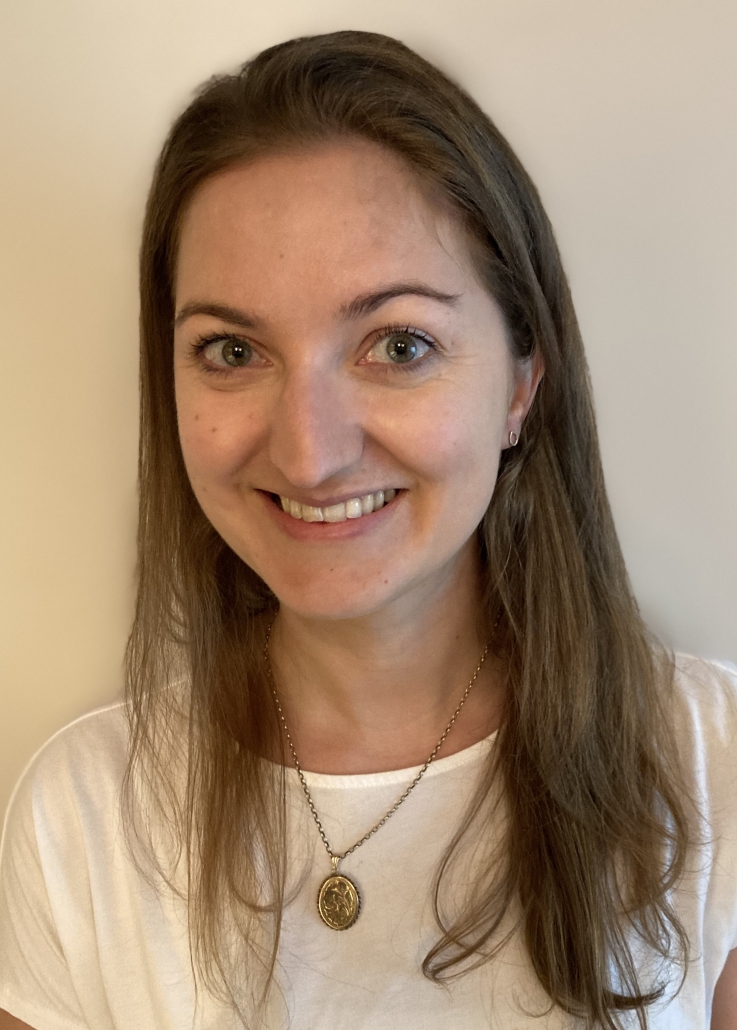 2022 Awardee
2022 Awardee
Madeleine Murphy, PhD
National Maternity Hospital, Holles St, Dublin, Ireland
Madeleine graduated from medical school from the National University of Ireland, Galway. She then undertook pediatric training in Ireland. Towards the end of her training, she undertook research into the care of newborn infants and was awarded her PhD from University College Dublin. PhD studies include a number of randomized trials and observational studies of delivery room care of newborn infants. Central to this research was the POPART trial, a randomized trial of prophylactic oropharyngeal surfactant for preterm infants.
Fellows’ Basic Research Award (3 awards given annually)

Naga Venkata Divya Challa, MD
University of Miami
I am Naga Challa, a second-year clinical fellow at Jackson Memorial Hospital/University of Miami Miller School of Medicine. My main area of research interest is Neonatal brain development which drove me to investigate the role of Gasdermin D (GSDMD) in the pathogenesis of brain injury in preterm infants and rodent models. To study the mechanistic role of GSDMD in brain injury of neonatal mice and preterm infants, we designed a basic science and a clinical project.
We randomized newborn GSDMD gene knockout (KO) mice and their wildtype (WT) littermates to room air or hyperoxia (85% O2) for 14 days. Analysis of the hippocampal sections of inflammatory injury by immunohistology was performed for allograft inflammatory factor 1 (AIF-1), a marker of microglial activation, and TUNEL assay, a measure of pyroptotic cell death. We found that hyperoxia-exposed WT mice had increased microglial counts with increased staining intensity and morphological changes of the microglia consistent with activation as well as increased numbers of TUNEL + cells, compared to room air exposed WT mice. Conversely, hyperoxia-exposed KO mice exhibited considerable resistance as hyperoxia failed to increase either AIF-1+ or TUNEL+ cell numbers.
We also found hyperoxia exposure differentially regulated a significantly higher number of genes associated with cell death in WT compared to KO indicating GSDMD plays a pathogenic role in preterm brain injury and targeting GSDMD may be beneficial in the prevention and treatment of brain injury and poor neurodevelopmental outcomes in preterm infants.
My clinical project focuses on the analysis of GSDMD expression in the circulating exosomes of preterm infants who are admitted to our NICU. This is an ongoing project and I intend to present the findings in PAS next year and submit a manuscript by the end of my fellowship.
I would like to thank the SPR Fellows’ Basic Research Award selection committee for considering my research work for this award.

Buyan-Ochir Orgil, MD
The University of Tennessee Health Science Center
Dr. Buyan-Ochir Orgil (Buyan) has completed his Medical School at the Health Science University of Mongolia, followed by Clinical Residency in Pediatrics and Fellowship in Pediatric Pulmonology. Currently, he is a Postdoctoral Fellow in Cardiology Genetics Research Laboratory at the University of Tennessee Health Science Center (UTHSC). The main research focus of Dr. Buyan is identifying genetic causes of cardiovascular diseases and investigating how genetic abnormalities contribute to the disease using systems genetics approach.
Regarding to this recognized research, Dr. Buyan has successfully employed his clinical knowledges in pursuing functional biology and systems genetics analysis of arrhythmogenic cardiomyopathy, a disease of heart muscle with high risk of sudden cardiac death. In this study, he performed systems genetics analysis joining human and mouse genetic datasets. Human studies included identification of pathogenic or likely pathogenic variants in 229 patients with arrhythmogenic cardiomyopathy using whole exome and Sanger sequencing. Murine studies included analysis of heart gene expression in BXD recombinant inbred (RI) mice (40 lines) derived from C57BL/6J and DBA/2J parental strains used as genetic reference population (GRP). Then, the filtered candidate pathogenic 24 genes with 82 pathogenic or likely pathogenic variants have been used to identify common genetic regulators of those genes through systems genetics analysis of heart transcriptomes across the BXD murine GRP. A joint human and mouse analysis suggested involvement of Chrm2, Mtpn, Lep and miR-29a in the pathogenesis of arrhythmogenic cardiomyopathy functioning as the common upstream regulators among those 24 pathogenic genes identified.

Nneka Ugwu, MD
St. Christopher’s Hospital for Children
Respiratory viral infections are a major global health concern with influenza virus responsible for majority of the infections. Neonates especially the preterm neonates are particularly susceptible and at the moment there is no vaccine available for infants less than 6 months of age.
Cathelicidin Anti Microbial Peptide (CAMP) is an antiviral, antibacterial and antifungal peptide that plays a critical role in innate immune defense in mammals. We however, noted improved survival in neonatal mice devoid of the CAMP gene with increased infiltration of alveolar macrophages to the site of infection when compared to wild type mice.
David G. Nathan in Basic Research Award (1 award given annually)
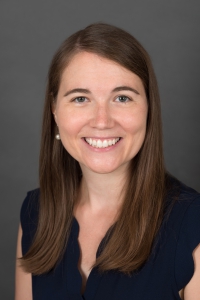
Amanda J. Clark, MD
University of Texas Southwestern
Dr. Clark’s research focuses on renal metabolism and the way renal injury changes kidney energy utilization. Specifically, Dr. Clark studies NAD+ biosynthesis alterations in kidney injury. By understanding the metabolic changes that take place in the injury setting, the mechanisms whereby those changes take place, and the effects of those changes, Dr. Clark hopes to broaden the understanding of renal injury physiology. The ultimate goal is to harness these new findings into metabolism-based therapies that that may be able to prevent or treat acute kidney injury – a condition that affects millions of people in the world each year and currently has no targeted treatment.
Additionally, Dr. Clark is interested in developmental renal resilience. Her early research has revealed how genetic or environmental differences in NAD+ synthesis and availability affect resilience against acute stress. In the future, she aims to expand her work to examine how to define and measure baseline renal stress resilience and to learn what developmental aspects contribute to adulthood renal stress resilience.
Basic Research Award for Fellows, sponsored by the Junior SPR Members’ Section (2 awards given annually)

Leslie Doucette, MD
Johns Hopkins
My project aims to assess for evidence of cholinergic dysfunction in a transgenic mouse model for human mutant amyloid precursor protein (APP- Swedish variation and presenilin (PS1-ΔE9) with neonatal HI. It is based on the hypothesis that early life brain injury in a genetically at-risk model for Alzheimer’s disease would manifest with worse learning, memory, and executive dysfunction than non-genetically at-risk mice and that these behavior deficits are based in early expression of cholinergic and other neuropathology seen in adult Alzheimers disease. Our first of their kind findings demonstrate an exacerbation of learning dysfunction in genetically at-risk mice with neonatal HI and that the degree of this behavioral deficit is associated with cholinergic axonal pathology manifesting at the level of the axonal terminal and neuronal synapse in the cortex.
My contributions involved all aspects of the project which included performing mouse touchscreen testing, food restriction with data collection and analysis in our APP/PS1 mouse model. I was also responsible for the cryopreservation and microtome sectioning of the mouse brains after perfusion. I performed immunohistochemistry experiments on the brain specimens. I performed histologic counting of neuritic and other pathology, did the statistical analysis and analysis for relationship of severity of behavioral outcome and neuropathology measures and wrote the abstract.

Thu Tran, DO
University of Texas Health Science Center at Houston
I have been fascinated with pulmonary pathology which have lifelong consequences in neonates. I approached my mentor, Dr. Joseph Alcorn, who has had a long career in pulmonary research. Through his guidance, I formulated my hypothesis on whether increased dosages of vitamin D could lead to different effects to the newborn lungs affected by hyperoxic acute lung injury.
With the expertise Dr. Alcorn could provide in basic sciences as well as a large wildtype mice colony, I learned the many skill sets needed to lead my own investigation. I delved into the scientific literature available and learned about the mechanics to create a murine model of hyperoxic acute lung injury.
To analyze the data, I learned many procedures including tissue harvesting, histological analysis, isolation of mRNA, production of cDNA and qT-PCR as well as analysis of mRNA expression. I also collaborated with many other scientists to help make this project possible. Most importantly, this research has taught me how to critically appraise and analyze results, use my observational skills to adequately draw conclusions, and continually adapt to the rigorous demands of scientific research.
Fellows’ Clinical Research Award (3 awards given annually)
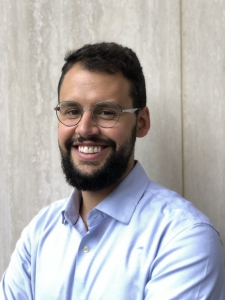
Mauro Caffarelli, MD
University of California, San Francisco
I am a clinical fellow in Pediatric Critical Care Medicine with dual board-certification in Pediatrics and Child Neurology. My clinical and research interest lies in developing tools for improved bedside utilization of noninvasive neuromonitoring techniques. Specifically, I want to examine the potential for electroencephalography (EEG) to be used as a noninvasive neuromonitoring tool for detection and monitoring of focal cerebral injuries by frontline providers.
During my residency, I developed a novel quantitative EEG ‘Correlate of Injury to the Nervous System’ (COIN) index to highlight background EEG changes associated with stroke. Under the mentorship of Dr. Christine K Fox and Dr. Edilberto Amorim, I completed a pilot study showing that COIN could discriminate between patients with stroke and healthy controls (p=0.003, unpublished). I am currently working to develop validation studies to assess the utility of COIN in clinical scenarios representing high risk for stroke.
My long-term goal is to become an independent investigator who will accelerate development of methodologies for enhancing bedside detection and early mitigation of stroke. This work will have a broad positive impact in the neurological outcomes of critically ill children and will be applicable to most settings where a clinical neurological examination is limited.
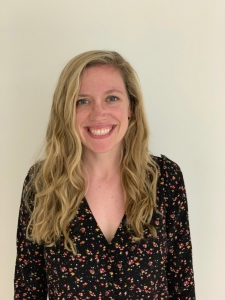
Anna M Cushing, MD
Children’s Hospital Los Angeles
Dr. Anna Cushing is a 2nd year pediatric emergency medicine fellow at Children’s Hospital Los Angeles. Dr Cushing’s primary academic interests include leveraging technology and the power of large data sets to research and improve healthcare delivery. Dr. Cushing currently also serves as fellow member of the Pediatric Emergency Medicine Collaborative Research Committee (PEM-CRC) steering committee.
She is awarded the 2022 SPR Fellows’ Clinical Research Award for her study titled “Predictors of Mental Health Revisits at Pediatric Emergency Departments in the United States” which was accepted as an oral platform presentation at the 2022 Pediatric Academic Societies Annual Meeting. Her work demonstrates the significant increase in mental health emergency department visits at U.S. children’s hospitals from 2015 to 2020, and, in a multivariable prediction model, identifies multiple patient, hospital, and community level predictors of pediatric mental health emergency revisits. Her work will be leveraged to support improved risk stratification and targeted implementation of prevention efforts for high-risk patients, in addition to benchmarking these potential interventions. She plans to continue this work as an academic pediatric emergency medicine physician and health services researcher.
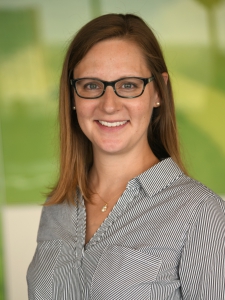
Stephanie Gilley, MD, PhD
University of Colorado School of Medicine
Dr. Stephanie Gilley is a fellow in the Section of Nutrition, Department of Pediatrics at the University of Colorado School of Medicine. She attended undergraduate at Middlebury College in Vermont which is where she first fell in love with scientific research. She then went to Tufts University in Boston where she graduated with a medical degree and a PhD in genetics. She completed both her residency in pediatrics and a clinical fellowship in pediatric nutrition and obesity medicine at the University of Colorado. She is currently a research fellow supported by a NIDDK T32 training grant.
Dr. Gilley is being recognized as an SPR award recipient for her research showing that rapid weight gain during infancy interacts with maternal pre-pregnancy BMI to increase offspring BMI and adiposity. Rapid infant weight gain is a potentially modifiable factor that, combined with gestational obesity exposure, increases childhood obesity risk. In the future Dr. Gilley plans to study factors that contribute to rapid weight gain, particularly in children of mothers with obesity, to develop effective interventions. She would like to thank her primary research mentor Dr. Kartik Shankar for his encouragement and guidance with this and other projects.
Richard D. Rowe Award in Clinical Research (1 award given annually)

Shipra Jain, MD
Cincinnati Children’s Hospital Medical Center
Evidence suggests that maternal hypertensive disorders of pregnancy (HDP) create a hostile uterine environment, which is associated with adverse neonatal neurodevelopmental outcomes later in life. The pathophysiology of these poor outcomes is not entirely elucidated. However, it is suspected to result from hypoxia-ischemia, nutrient deficiency, and/or angiogenic and immuno-vascular dysfunction related to pre-eclampsia, a subtype of HDP. While animal models and studies of term infants consistently indicate poorer behavioral and neurodevelopmental outcomes following exposure to HDP, reported effects on preterm infants are mixed, showing positive, negative, or no association with neurodevelopmental impairments. This variability may be due to comparisons with heterogeneous control groups and/or incomplete/inappropriate control of confounding. Thus, adequately controlling for confounders and comprehensively evaluating brain structural abnormalities on MRI at term-equivalent age (TEA) that are not confounded by factors occurring after NICU discharge may answer this question.
Therefore, after a thorough literature review, I devised a hypothesis-driven research protocol to investigate the impact of HDP on neonatal brain development in very preterm infants under the able guidance of my mentors. I submitted an amendment to my institutional review board to leverage the ongoing Cincinnati Infant Neurodevelopment Early Prediction Study (CINEPS PI: Nehal Parikh), whose primary goal is to use advanced neuroimaging measures to improve the prediction of neurodevelopmental outcomes in very preterm infants. I participated in advanced MRI tutorials with my mentors and self-directed learning to understand these advanced imaging measures, which I used as an outcome measure in my research. I reviewed 395 medical records, both maternal and neonatal, to find further details needed to analyze our hypothesis and added valuable information to the existing data set. I ran the descriptive analyses of my study groups using SPSS 28, which my statisticians confirmed, and in collaboration, we then established the independent risk of HDP on the development of brain abnormalities. I prepared the initial draft of the PAS abstract and am currently writing the manuscript with guidance from my mentors. In ongoing research, we are also examining the effects of HDP and pre-eclampsia on neurodevelopmental outcomes and the potential mediating role of early structural brain abnormalities on neurodevelopmental impairments at two years corrected age.
Our study will contribute to a greater understanding of the pathophysiological role of maternal hypertension on preterm brain and neurodevelopment. In addition, it will aid in the early identification of these children at the highest risk, which in turn will be helpful in prognostication and counseling for parents. My mentors (Nehal Parikh, Maria Barnes-Davis, and Ting Ting Fu) have played a significant role in helping and guiding me through every step. I aspire to continue this work beyond my fellowship into an academic career as a physician-scientist focusing on research and providing excellent clinical care to improve long-term neurodevelopmental outcomes of premature infants.
Clinical Research Award for Fellows, sponsored by the Junior SPR Members’ Section (2 awards given annually)

Mausma Bawa, MD
Jacobs School of Medicine, University at Buffalo
Dr. Mausma Bawa, MD is currently a final-year Neonatology fellow at the University at Buffalo, New York. Her interest in neonatal resuscitation began during her medical training in India, where she witnessed high morbidity and mortality from birth asphyxia. Under the able mentorship of Dr. Praveen Chandrasekharan, her current research focuses on the impact of resuscitation and evaluation of cardiac and brain injury using an ovine bradycardia model.
Dr. Bawa is a junior member of the ESPR, Society for Pediatric Research and MSPR – Lung Biology Research Cohort Network – a pilot program to support early career pediatric researchers.
She is the recipient of multiple awards including the ESPR Young Investigator Trainee Award 2021and the SPR Fellows Clinical Research Award 2021. Additionally, she is one of the 3 early-stage investigators nominated by SPR to present her research at the 125th Annual Meeting of the Japan Pediatric Society (April 2022).
This year, she is a recipient of the 2022 ESPR Abbott Nutrition Trainee Diversity in the Workforce Travel Award for her abstract “A randomized control trial comparing the current recommendations of ventilation and chest compression vs ventilation during neonatal resuscitation using an ovine model of bradycardia”. She is also one of the 29 trainees to receive the PAS 2022 Trainee Travel Award happening in Denver, Colorado (April 2022).
As a future neonatologist and researcher, her goal is to optimize neonatal outcomes by developing interventions to prevent or mitigate morbidities due to perinatal asphyxia.
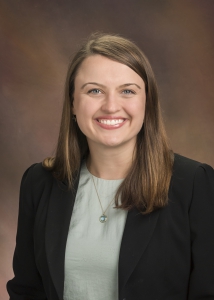
Elizabeth Salazar, MD
Children’s Hospital of Philadelphia
Elizabeth (Betsy) Salazar is a third year fellow in neonatology at the Children’s Hospital of Philadelphia. She is focused on understanding how the structure and process of the perinatal health system impact perinatal outcomes and quality of care.
As a member of the CHOP Neonatal-Perinatal Health Services Research Group, she is involved in several projects studying perinatal care delivery. Her work focuses on quality of care in moderate and late preterm infants and risk-appropriate supports for the transition from NICU to outpatient care. She is currently completing a Masters of Science in Health Policy at the University of Pennsylvania. Her primary mentors are Scott Lorch and Sara Handley.
She is being recognized as an SPR award recipient for work examining how a novel Maternal Vulnerability Index may be used to examine geographic variation in perinatal outcomes.
